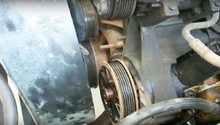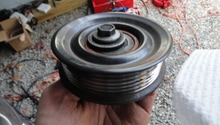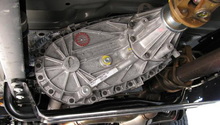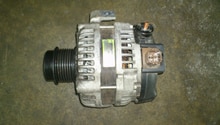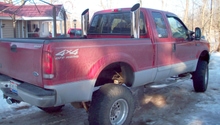Ford F-150/F-250: Why is My Truck Whining?
Driving your truck recently has been irritating thanks to that incessant whine. To make matters worse, you can't seem to figure out which part of the engine it's coming from. This simple walkthrough helps you determine the source of your truck's whining, have it sorted, and rekindle the love affair you once had for your beloved F-150 or F-250 truck.
This article applies to the Ford F-150 (2004-2014) and F-250 Super Duty (2005-2014).
Great driving experiences with the Ford F-150 and F-250 trucks can be marred by whining from mechanical failures. The whining can come from the alternator, filter, chassis, steering wheel, air conditioning clutch belt, pulley bearing or the fuel pump. Locating the source of the whines by ear is challenging for mechanical novices. That's why investing in a mechanic's stethoscope is a good idea when trying to identify which component is causing the whine. The stethoscope can also help detect piston slaps, worn gears, faulty valves, water pump failure, faulty gaskets, and bearings. You can find one at online stores like Harbor Freight Tools; the mechanic’s stethoscope costs from $5 to $15.

Clogged fuel filter
Ford F-150 or F-250 series' engines will likely whine during acceleration when the fuel filter is clogged or loosely sealed. Clean the filter valves and tighten them if they are loose. When valves are loose, they suck air into fuel systems and increase the likelihood of mechanical problems.
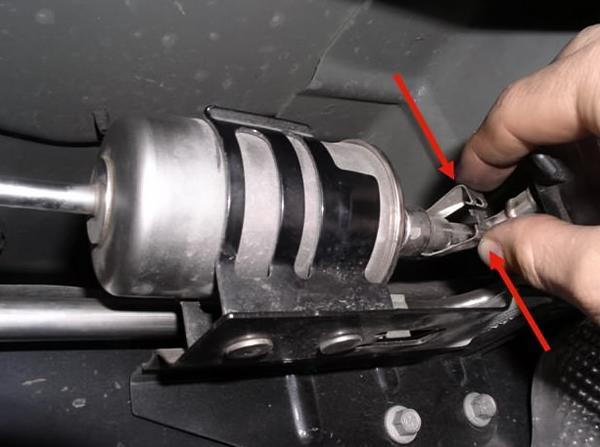
Alternator failing
A Ford truck that whines at idle could have a problem with the alternator. An easy way to be sure of this is to listen the alternator with a mechanical stethoscope. Typically, a failing alternator will be accompanied by other charging issues, like a hard time starting the car or electronics that flicker under load. The alternator whining noise is due to its high rotational burden and charging load for the truck’s battery. Replacing the alternator can cost from $40 to over $350 depending on the truck.
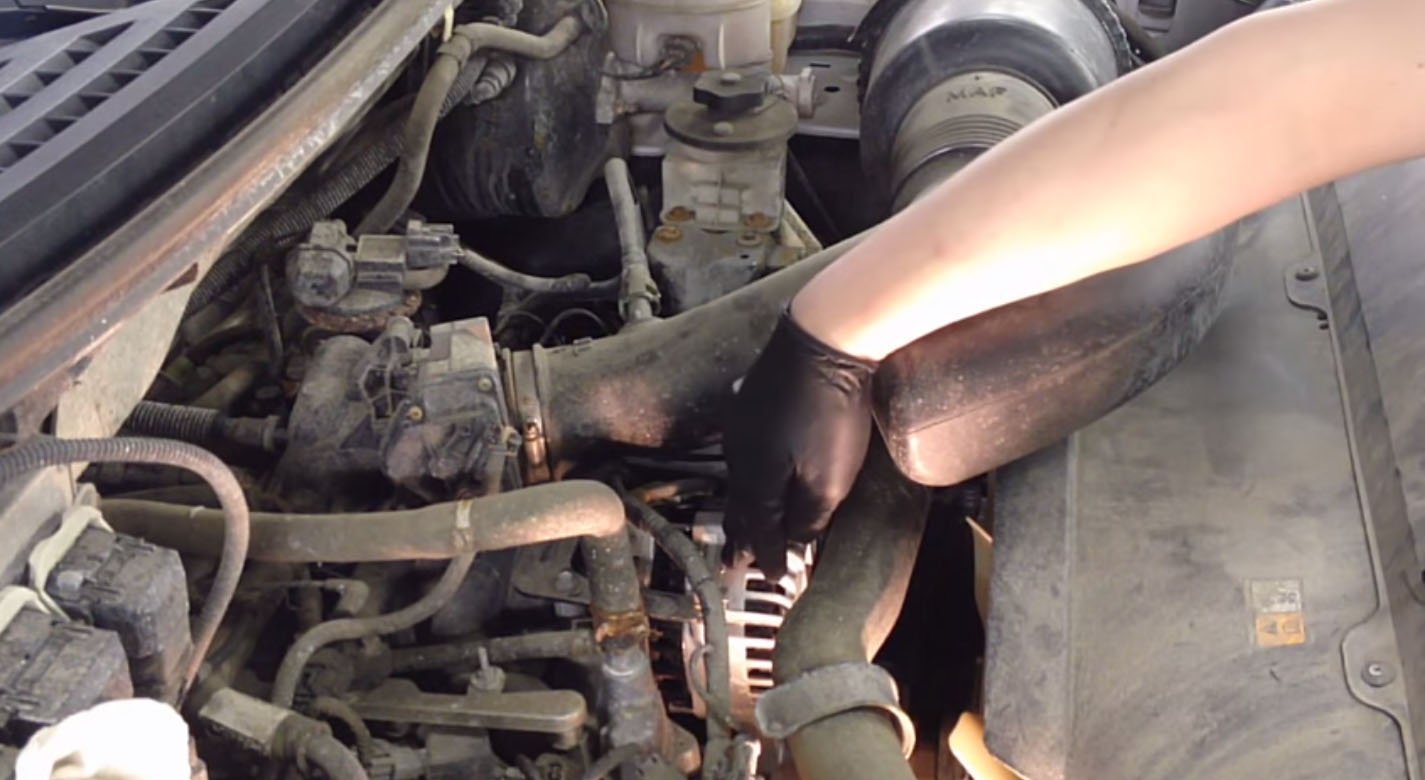
Failing accessory pulleys
Ford trucks producing a high pitched whine or squeak could signify a problem with pulleys. The bearings in the idler and accessory pulleys will whine when they go bad. However, because of their size and position at the front of the engine, it can be difficult to tell which pulley is bad (if any pulley is). Again, the mechanic's stethoscope comes in handy here.
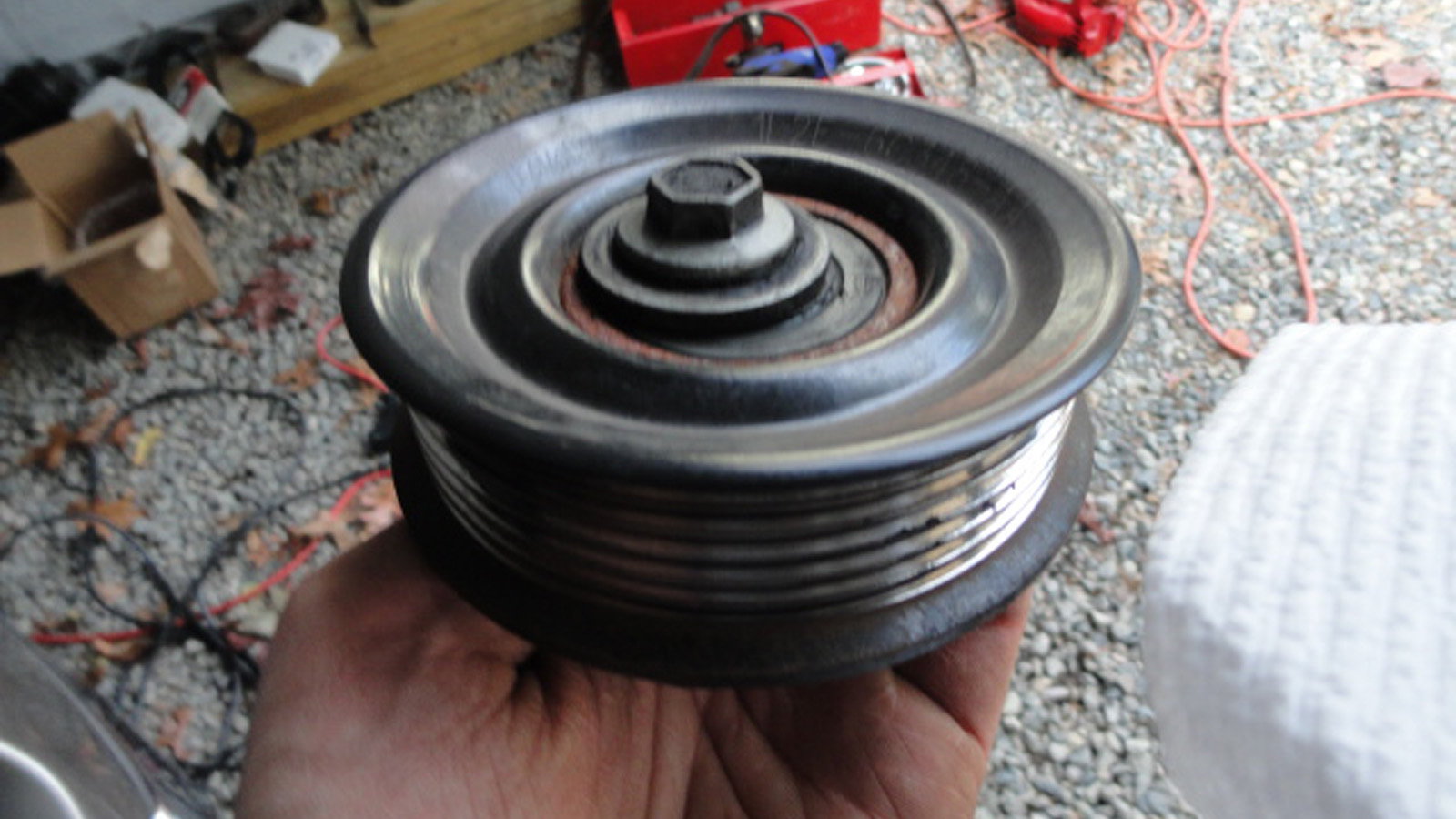
Belt whine
Cold weather can cause the F-150 and F-250 trucks to produce a whistle from the engine bay while the belts warm up. According to many Ford truck owners, this problem is intermittent and stops when temperatures increase or when driving over 60 miles per hour. When it’s cold, the alternator bearing produces the whine, too, but there is no need to replace it.
The power steering is another source of whining. If turning the wheel produces a groaning or whining from your power steering system, then there are two possibilities. The most likely possibility is that the F-150 or F-250 is low on power steering fluid. A worn out power steering hose might've bled fluid out over time to the point where the system is struggling. It might also mean that the pump itself is dying. Replacing the pump is probably best left for a mechanic.
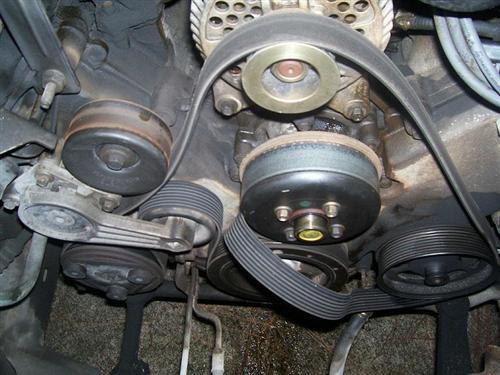
Pro Tip
Always ensure all belts are tensioned to stop them from slipping off pulleys. It's also advised to keenly supervise the serpentine belt after the truck has chalked up 50,000 miles to be sure it is in top operating shape.
Related Discussion and Sites
- 5.4L V8 Whining - F150online.com
- Fuel Filter Change - Ford-Trucks.com
- V6 Ecoboost Whine - F150online.com

